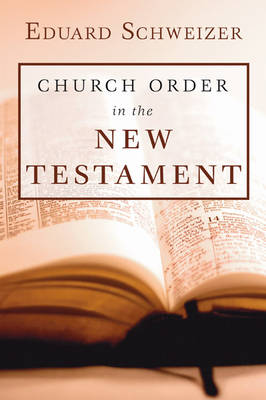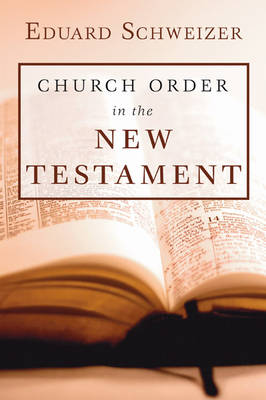
- Afhalen na 1 uur in een winkel met voorraad
- Gratis thuislevering in België vanaf € 30
- Ruim aanbod met 7 miljoen producten
- Afhalen na 1 uur in een winkel met voorraad
- Gratis thuislevering in België vanaf € 30
- Ruim aanbod met 7 miljoen producten
Zoeken
€ 30,95
+ 61 punten
Uitvoering
Omschrijving
Schweizer listens carefully to the testimony of the various New Testament writers in order to understand the theological problem of how the New Testament church understood itself, and how it expressed that understanding in its order. The purely historical question about the form of the church at different times is seen by Schweizer as necessary, but need only be asked insofar as the actual shaping of the church is always evidence of the concept of its own nature to which it testifies. Thus, Schweizer arranges the New Testament writings primarily by the theological kinship of their idea of the church, providing a comprehensive examination of the church in the New Testament and Apostolic Fathers. He treats both the diversity of views and the unity found in these writings. He also discusses issues relating to church office, ministry, and ordination.
Specificaties
Betrokkenen
- Auteur(s):
- Uitgeverij:
Inhoud
- Aantal bladzijden:
- 240
- Taal:
- Engels
Eigenschappen
- Productcode (EAN):
- 9781597528108
- Verschijningsdatum:
- 1/07/2006
- Uitvoering:
- Paperback
- Formaat:
- Trade paperback (VS)
- Afmetingen:
- 141 mm x 218 mm
- Gewicht:
- 294 g

Alleen bij Standaard Boekhandel
+ 61 punten op je klantenkaart van Standaard Boekhandel
Beoordelingen
We publiceren alleen reviews die voldoen aan de voorwaarden voor reviews. Bekijk onze voorwaarden voor reviews.







